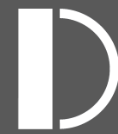Introduction
Deggendorf Institute of Technology is a public university of applied sciences located in Bavaria, Germany. It is well-known for its teaching and research in the fields of engineering, economics, computer science, and applied natural and health sciences. It is one of the innovative pioneers in the field of higher education in Bavaria.
Overview
Student size: There are currently about 8,324 students.
Faculty: There are 800 administrative staff, including 140 professors and 260 lecturers.
History and establishment time
The school was founded in 1994, began to use the campus on the Danube River in 1998, developed the R&D laboratory in 1999, opened the Innovation and Technology Campus Deggendorf (itc1) in 2001, established the college in 2006, introduced bachelor's and master's degree programs in 2007, and officially changed its name to Deggendorf Institute of Technology on October 1, 2013.
School strength
Course settings: The school has 8 colleges, offering about 80 There are different bachelor's and master's degree programs covering economics, engineering, computer science, applied natural sciences and health sciences. The teaching results in professional fields such as civil engineering and environmental technology, electronic engineering and media technology, mechanical engineering and mechatronics are remarkable.
Teaching mode: Focus on practical teaching, work closely with local enterprises, provide students with internship and practical project opportunities, help students apply theoretical knowledge to practical work, and improve students' employment competitiveness.
Institutional nature
Public university of applied sciences.
Educational philosophy
Committed to providing students with high-quality education, cultivating professional talents with innovative spirit, practical ability and social responsibility, focusing on the personalized development of students, encouraging students to actively participate in scientific research and practical activities, and improving students' comprehensive quality and ability to solve practical problems.
Key laboratories and disciplines
Key disciplines: Engineering, computer science, economics, applied natural sciences, health sciences, etc. are the key disciplines of the school. It has strong teaching and research strength in professional directions such as civil and architectural engineering, electrical and information technology, mechanical engineering, mechatronics, and engineering physics.
Key laboratories: The school has multiple R&D laboratories, focusing on research and development in engineering technology, information technology, natural sciences and other fields. These laboratories are equipped with advanced experimental equipment and instruments, providing good conditions for students and teachers' scientific research activities.
Faculty
The school has 8 colleges, including the School of Civil Engineering and Environmental Technology, the School of Applied Economics (School of Management), the School of Electronic Engineering and Media Technology, the School of Mechanical Engineering and Mechatronics, the School of Applied Natural Sciences and Industrial Engineering, the School of Applied Health Sciences, the School of Computer Science, and the Rottal-Inn European College.
Ranking
In the German Higher Education Center CHE Ranking (2019/2020), the school's civil and architectural engineering, electrical and information technology, mechanical engineering, mechatronics, engineering physics and other majors were rated as excellent.
In the 2021 World's Universities with Real Impact Ranking, the school ranked fifth in the world in the "Entrepreneurship" category and seventh in the world in the "Crisis Management" category.
In the 2023 WURI Ranking, the school ranked 14th in the "Entrepreneurship" category. Ranked first in terms of education.
Expenses
Tuition fees: This school is a public university. For students in Bavaria and some eligible international students, tuition fees are usually not required. However, some semester miscellaneous fees may be required for student services, facility use, etc., which are about 100-300 euros per semester.
Living expenses: In Deggendorf, students' annual living expenses are about 8,000-10,000 euros, including accommodation, food, transportation, books and other personal expenses.
Campus
Campus location: The main campus is located in Deggendorf, Bavaria, Germany. In addition, there are campuses in Pfakirchen, Cham and other places. Deggendorf is a beautiful town with the Danube River running through it and the Bavarian Forest around it, providing students with a good learning and living environment.
Teaching facilities: The campus is equipped with modern teaching facilities, including laboratories, computer rooms, libraries, gymnasiums, etc. The library has a rich collection of books and provides a large number of paper books and electronic resources to meet students' learning and research needs. The computer room is equipped with advanced computer equipment and software, providing students with good learning and practice conditions.
Living facilities: The school provides students with complete living facilities, including student dormitories, canteens, cafes, supermarkets, etc. The student dormitories are comfortable and well-equipped, providing students with good living conditions. The canteen provides a variety of dining options to meet the taste needs of different students.
-

Heidelberg University
-

University of Freiburg
-

University of Jena
-

University of Marburg
-

University of Rostock
-

University of Halle-Wittenberg
-

University of Bayreuth
-

Leipzig University
-

University of Tübingen
-

Humboldt University of Berlin
-

Mesoamerican University
-

Istmo University
-

Mariano Galvez University of Guatemala
-

Regional University of Guatemala
-

Galileo University
-

Francisco Marroquín University
-

Rafael Landívar University
-

University of the Valley of Guatemala
-

University of San Carlos of Guatemala
-

Technological Institute of Tlaxcala Plateau
-

Golfo University
-

Technological University of South Sonora
-

Technological University of Huejotzingo
-

Tizimín Institute of Technology
-

Chilpancingo Institute of Technology

